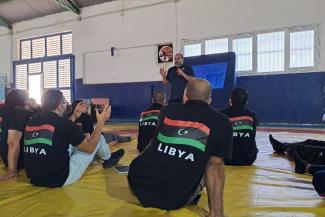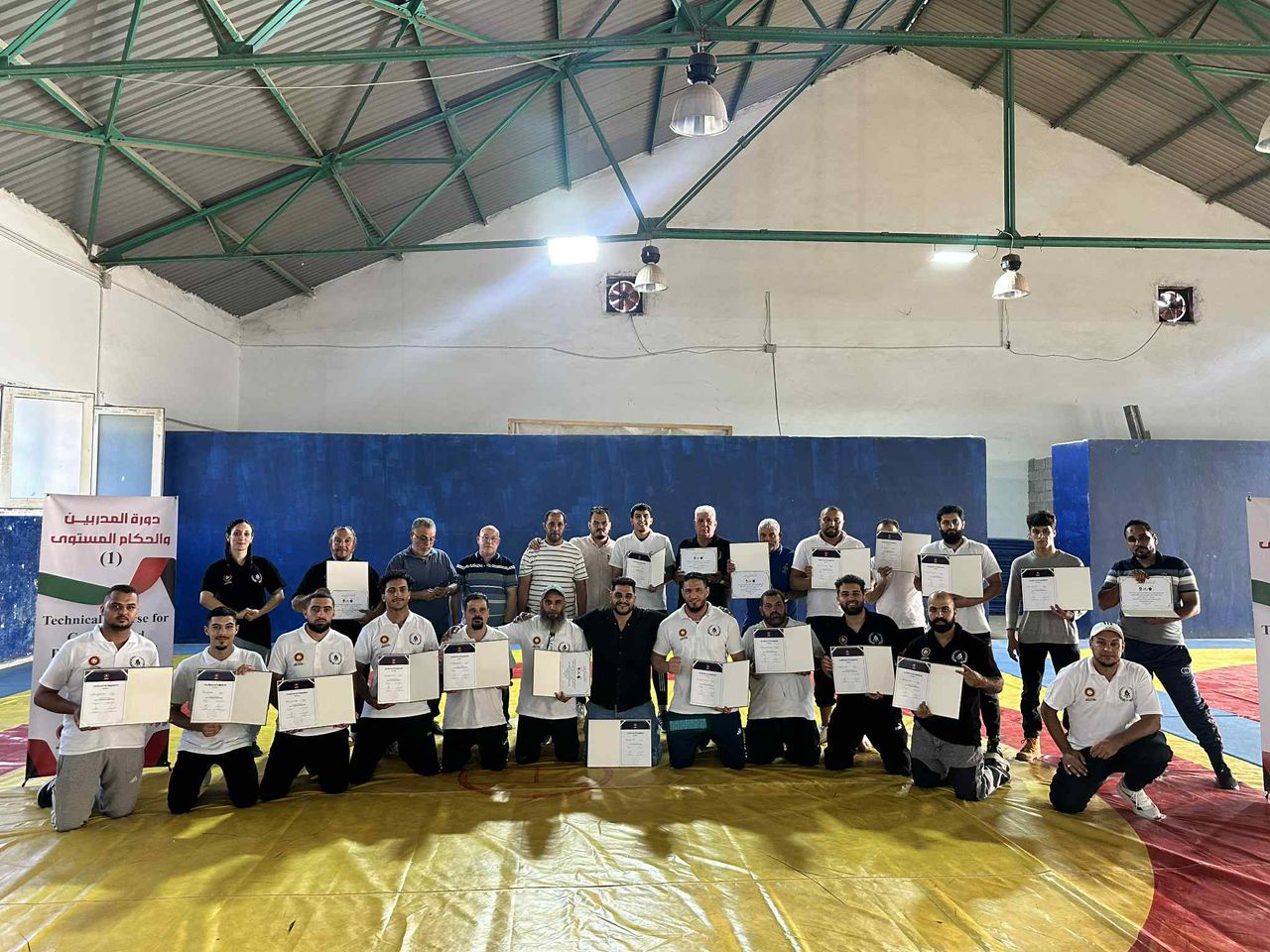Jamalov loss, historic Olympic medal for Albania, defensive style: Valiev opens up to UWW
Monday, October 21, 2024 - 17:06 By Vinay Siwach

TIRANA, Albania (October 21) -- Cherman VALIEV (ALB) sits in the 'VIP Lounge' of the Feti Borova Sports Hall in Tirana on the sidelines of the U23 World Championships. He certainly is a very important person in Albania. At the Paris Olympics in August, Valiev won the bronze medal in the 74kg weight class, becoming Albania's first-ever Olympic medalist in any sport.
Two months later, he has had time to reflect on his Paris Olympic campaign, the controversial loss against Razambek JAMALOV (UZB), and is preparing for the new season, in which he wants to avenge that loss against Jamalov.
United World Wrestling caught up with Valiev on the sidelines of the U23 World Championships. Excerpts from the interview:
- Reflecting on his bronze medal at the Paris Olympics
Valiev: It’s a dream for every athlete to compete at the Olympic Games. As for me, I was able to win a medal. It’s a historic medal for Albania, the first one ever in any sport. It’s a great honor for me that I was able to live up to their expectations. When I joined the national team, they believed in me. I am glad that I could meet their expectations.
I was given an apartment in Albania for winning the Olympic bronze. I am very grateful that they value the athlete’s hard work. I was given prize money as well. Sometimes people on the streets in Albania would come over and ask for a photo. It’s really nice and it motivates me to continue giving my all to show the best results.
I realize that I’ve won a medal at the Olympic Games. This motivates me to keep working even harder. Time flies quickly, and before you know it, the next Olympic Games will be here.

- Experience at the Paris Olympics
Valiev: I think I gave my all in those two days and did everything I could. I wrestled with all my strength and did my best on the mat. As I said before, I had four matches in Paris, and I won all four of them. To this day, I have been reviewing the matches and I believe that I won without any doubts. If there was any other wrestler in my position he would defend when leading the match. I wasn’t fleeing the mat, I was just defending and this is within the rules.
[In the bronze medal bout], I was emotionally motivated to avenge that loss in Istanbul [at the World Olympic Qualifier]. It was crucial for me at that time to prove that I was better than him, and I was very determined and focused on that match. So, I convincingly defeated Viktor with a score of 6-2 in Paris.

- On his return to Ossetia after Paris Olympics
Valiev: I was welcomed very well in Ossetia as if I was an Olympic champion. I received a lot of support, people were saying that I was their Olympic champion. Even many people not from Ossetia, but from other regions were saying that they saw everything and that I was an Olympic champion for them. It’s very pleasing for me to be appreciated that way.
- On his wrestling style
Valiev: I am not going to change anything in my style. If you don't defend in wrestling, you will give up points. I defend and attack at the same time, scoring points. After all, I win matches somehow. If I didn’t attack, the referees wouldn’t give me points. As I said before, I will try to take the lead in order to avoid such situations in the future. I haven’t really noticed anyone saying that I have a passive wrestling style. I don’t know how to explain it, but as soon as I feel the referee is about to give a passivity point, I always try to change the course of the match.
I don’t usually prepare for any specific wrestler. I just do my job. I have a plan in my head, I watch their matches, and I know their strengths and weaknesses. For example, if I know he has a signature move, I try not to get caught for that. Sitting and watching the matches of my opponents all day long isn't something I do.
- On growing up with wrestling
Valiev: Wrestling is the number one sport in Ossetia. In my hometown Ardon, there was just wrestling and football. My elder brother started wrestling first. All our family is into it. My father used to wrestle as well. There are three kids in the family. My brother, sister and myself. I started wrestling when I was eight years old. My dad was wrestling only when he was at school, but my elder brother still trains, he sometimes competes at the local tournaments and finishes on the podium. So there was no choice. I liked playing football as well, but up until now, I do freestyle wrestling. When I was wrestling at the cadet level, I started showing some good results, I started going here and there to the training camps and competitions. I really loved that atmosphere of traveling to different places and meeting new people. So, I couldn’t give it up.
When I was a kid, the coaches were telling me that I was talented and that I had to train hard, but it wasn’t something like being a wonder kid or someone very special.
- On his idol Kudukhov
Valiev: I always wanted to be like Besik KUDUKHOV. I always tried to copy his wrestling style, his moves and his throws. He was super-fast and I really copied him, but only when I was a child. Over time I’ve got my own style and technique. It’s difficult to be as fast as he was. I got the chance to train with Besik only once. It was two days before he died. Up until now, people keep saying that he was a very well-mannered, decent man. He was not just a good wrestler, but also a very kind person.
- On his return to competition next year
Valiev: My next tournament will be a Ranking Series here in Albania. When I step on the mat, the number one priority for me is to win the match. Of course, the Olympic medal gives me more confidence and status, but the medal won’t wrestle for me. So, I have to do my best to win the match.
I have learned a little bit of the Albanian language, I really want to improve on that. But I need to start with English first.
(Translation by Karina Mirzoian)





Share your thoughts.
Comments